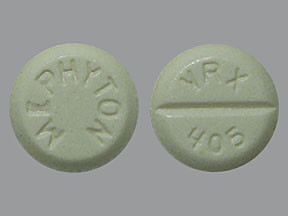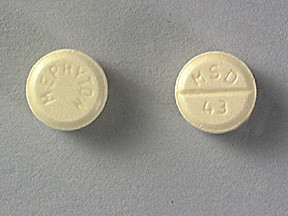VITAMIN K - ORAL
PHONETIC PRONUNCIATION: (VYE-ta-min)
COMMON BRAND NAME(S): Mephyton
GENERIC NAME(S): phytonadione (vit K1)
Uses
USES: Vitamin K is used to treat and prevent low levels of certain substances (blood clotting factors) that your body naturally produces. These substances help your blood to thicken and stop bleeding normally (such as after an accidental cut or injury). Low levels of blood clotting factors increase the risk for unusual bleeding. Low levels may be caused by certain medications (such as warfarin) or medical conditions (such as obstructive jaundice). Vitamin K helps to treat and prevent unusual bleeding by increasing the body's production of blood clotting factors.
How to use VITAMIN K - ORAL
HOW TO USE: If you are taking the over-the-counter product to self-treat, read all directions on the product package before taking this medication. If you have any questions, consult your pharmacist. If your doctor has prescribed this medication, take it as directed. If you are using the rapidly-dissolving tablets, place under your tongue to dissolve, then swallow with or without water. Some brands may also be swallowed whole. The dosage is based on your age, medical condition and response to treatment. Do not increase your dose or use this drug more often or for longer than directed. Your condition will not improve any faster, and your risk of side effects will increase. If you are using a certain "blood thinner" drug (warfarin), vitamin K can decrease the effects of warfarin for up to 2 weeks. Be sure to take your vitamin K and warfarin exactly as directed by your doctor or pharmacist. If you develop easy bruising or bleeding, or if you think you may have a serious medical problem, get medical help right away. You may need another dose of vitamin K.
Side Effects
Precautions
Interactions
Overdose
Images

- color
- yellow
- shape
- round
- imprint
- VRX 405, MEPHYTON
Reviews
Faq for VITAMIN K - ORAL
Oral vitamin K is used to prevent or treat vitamin K deficiency, which can lead to abnormal bleeding or clotting disorders.
Oral vitamin K should be taken exactly as directed by your healthcare provider. Typically, it is taken with food to enhance absorption. It is important to follow the recommended dosage and duration of treatment.
Common side effects of oral vitamin K may include upset stomach, diarrhea, or nausea. Inform your healthcare provider if these side effects persist or worsen.
It is essential to discuss any potential drug interactions with your healthcare provider. Oral vitamin K can interfere with blood-thinning medications, including warfarin (Coumadin®), so it is important to monitor your blood clotting levels closely if taking both substances.
Oral vitamin K is considered safe for most pregnant women when taken in recommended dosages. However, it is crucial to consult with your healthcare provider before starting any new supplements during pregnancy.
While it is rare to overdose on vitamin K, excessive intake can lead to adverse effects. Taking more than the recommended dose may cause flushing, dizziness, or rapid heartbeat. Seek medical attention if you suspect an overdose.
The time it takes for oral vitamin K to work varies depending on the individual and their condition. It is essential to follow the recommended dosage and duration prescribed by your healthcare provider for optimal results.
Oral vitamin K can interact with certain medications, such as blood thinners or cholesterol-lowering drugs. It is important to inform your healthcare provider about all medications and dietary supplements you are taking to avoid potential interactions.
It is generally safe to take oral vitamin K alongside other vitamins or supplements. However, it is advisable to consult with your healthcare provider or pharmacist to ensure there are no potential adverse effects or interactions.
Disclaimer
IMPORTANT: HOW TO USE THIS INFORMATION: This is a summary and does NOT have all possible information about this product. This information does not assure that this product is safe, effective, or appropriate for you. This information is not individual medical advice and does not substitute for the advice of your health care professional. Always ask your health care professional for complete information about this product and your specific health needs.



No Reviews Yet